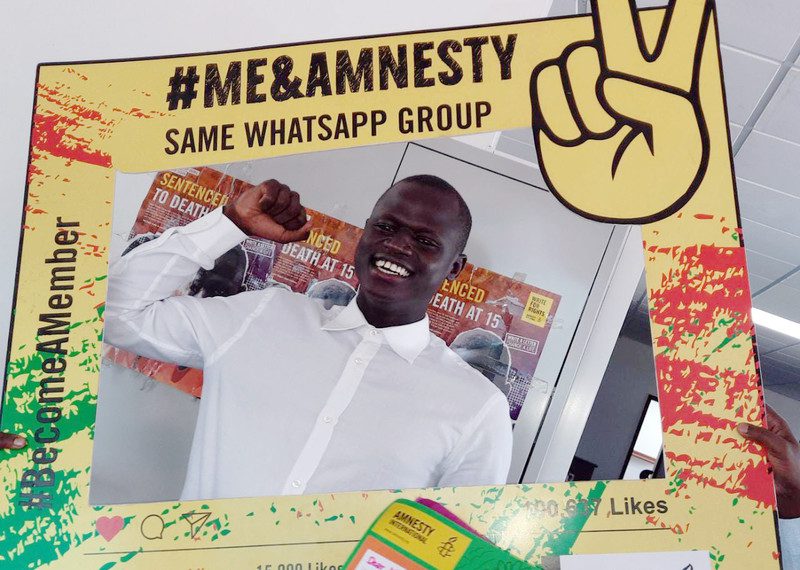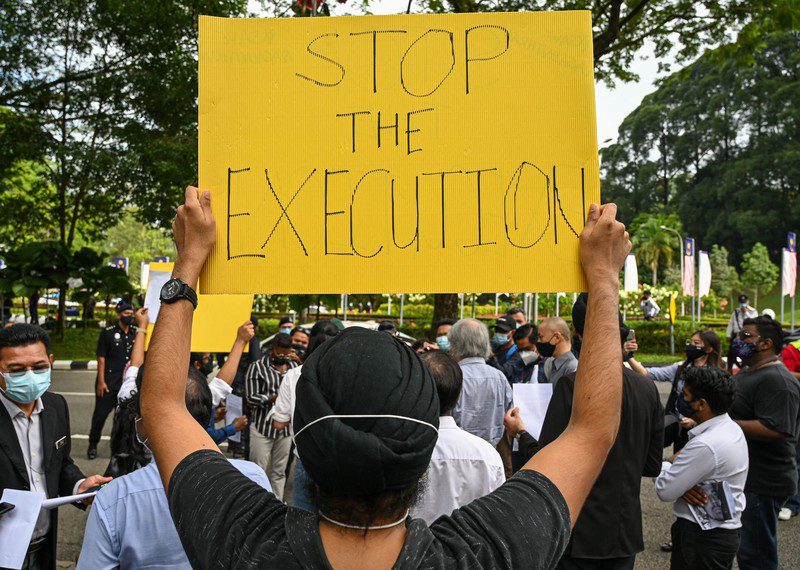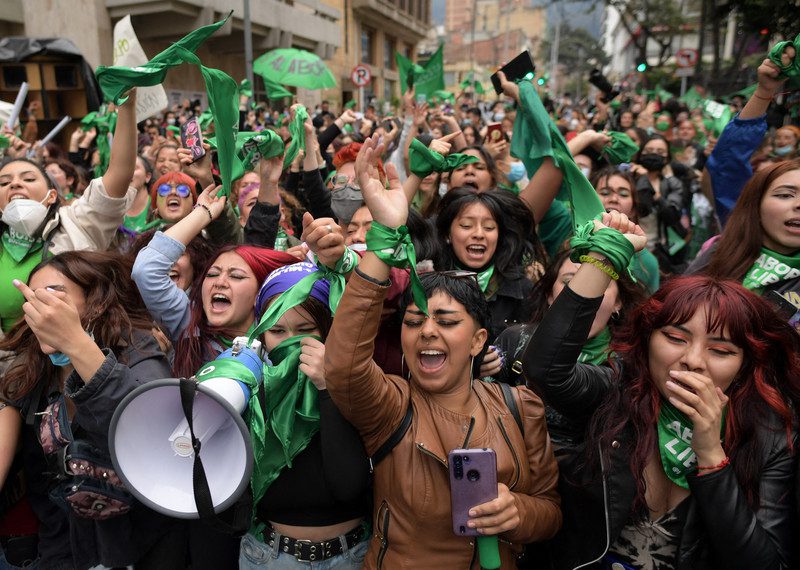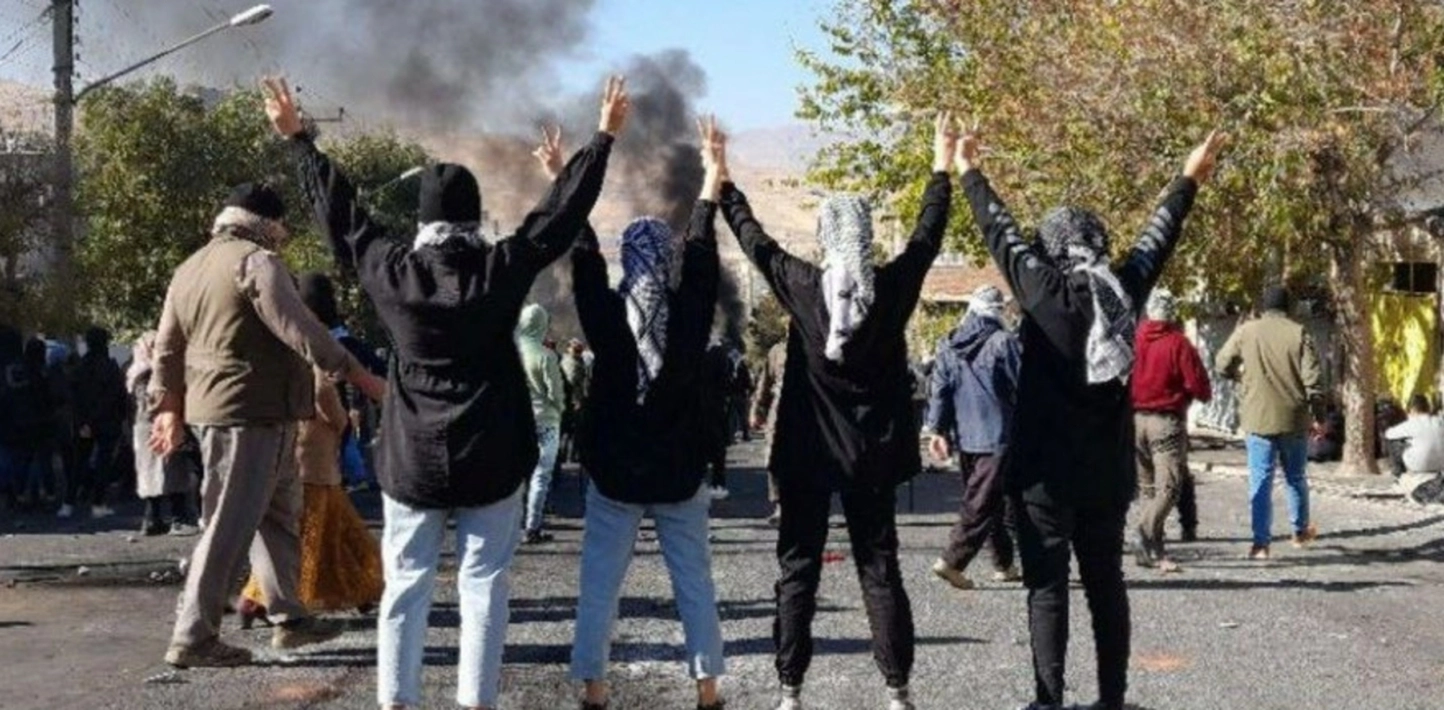Confronted with what can sometimes seem like an endless cycle of bad news in the media, it’s easy to feel despondent. But, amid the gloom, there were plenty of good news stories to celebrate this year.
Throughout 2022, Amnesty’s ongoing campaigning, media and advocacy work contributed to positive outcomes for people all over the world whose human rights were being violated. Individuals unjustly detained were freed from prison. Human rights abusers were held accountable. Vital legislation and resolutions were passed by governments at national and international level. Progress towards the global abolition of the death penalty continued. And important advances were made both for the rights of women and LGBTI people.
Here’s a round-up of human rights wins in 2022.
Individuals freed from unjust imprisonment
Amnesty’s ongoing work for individuals helped secure the release of people across the world, delivered justice for families, and held abusers accountable.
In January, university lecturer Professor Faizullah Jalal was released after being arbitrarily arrested and detained by the Taliban.
Hejaaz Hizbullah, a Sri Lankan lawyer and Amnesty prisoner of conscience, was granted bail in February after almost two years of pre-trial detention under Sri Lanka’s draconian Prevention of Terrorism Act (PTA). Two other detainees held under the PTA, Ahnaf Mohamed Imran and Divaniya Mukunthan, were also released on bail in August and September respectively.
In Honduras, the “Guapinol eight”, a group of water rights defenders and prisoners of conscience, were unconditionally released in February, after spending more than two years in prison for their human rights work.
The following month, in neighbouring Guatemala, Indigenous Mayan environmentalist and prisoner of conscience Bernardo Caal Xol was released early after being jailed on bogus charges related to his activism. More than half a million actions were taken on his behalf during Amnesty’s 2021 Write for Rights campaign.

Elsewhere, Magai Matiop Ngong — for whom more than 700,00 actions were taken during Write for Rights 2019 — was released from prison in South Sudan in March, having been sentenced to death at the age of 15 in 2017.
August saw the release of schoolteacher Hriday Chandra Mondal, who was detained for discussing the difference between science and religion in his classes. All charges against him were subsequently dropped.
In May, 18-year-old Palestinian Amal Nakhleh, who suffers from a chronic autoimmune disorder, was released from Israeli administrative detention following 16 months of campaigning by Amnesty and others.
In July, a Russian court acquitted Yulia Tsvetkova of “production and dissemination of pornographic materials” over her body-positive drawings of vaginas that were published online.
Following an Urgent Action by Amnesty, Maldivian activist Rusthum Mujuthaba, who was being held on blasphemy charges in relation to a social media post, was released from prison in August.
Palestinian national Dr. Mohammed al-Khudari was released from prison in Saudi Arabia in October after spending more than three years in arbitrary detention along with his son, Dr. Hani al-Khudari. Both men were handed down prison sentences based on trumped-up charges. Dr. Hani al-Khudari remains in prison despite the expiry of his sentence in February and Amnesty continues to campaign for his release.
Six Palestinian men who reported that they had been tortured in Palestinian Authority prisons were released on bail within two weeks of Amnesty’s intervention in November.
Thanks to the support of Amnesty Argentina, a Ukrainian family was able to escape the war and settle in the country in November. A short film documenting their story is available here.
In Yemen, journalist Younis Abdelsalam was released in December after being arbitrarily detained for over a year for peacefully exercising his right to freedom of expression.
Justice for families, abusers held accountable
In Malawi, justice was served in April when a court convicted 12 men over the 2018 killing of MacDonald Masambuka, a person with albinism.

In June, partial justice was finally delivered for the 2016 murder of environmental and Indigenous rights activist Berta Cáceres, as David Castillo was sentenced to prison for co-authoring her killing. Amnesty continues its campaign to bring others suspected of responsibility for Berta’s murder to justice.
After pressure from the US authorities, and following a visit by President Biden to Israel, the Israeli Defense Ministry agreed in October to pay compensation to the family of Palestinian-American Omar As’ad, who died after Israeli soldiers ill-treated him at a checkpoint in January.
In November, the US Federal Bureau of Investigation informed the Israeli government that it would conduct an investigation into the May killing of Palestinian-American journalist Shireen Abu Akleh by an Israeli soldier.
In December, a Lebanese judge indicted five State Security members on charges of torture in the case of Syrian refugee Bashar Abdel Saud, who died in custody in August.
Continued progress towards the global abolition of the death penalty
Amnesty’s campaign for the global abolition of the death penalty saw further success in 2022, as a string of countries abolished or took significant steps towards abolishing the punishment.
The abolition of the death penalty for all crimes came into force in Kazakhstan in January. Papua Guinea followed suit in April, repealing the punishment 30 years on from its reintroduction.

Via social media, Zambia’s President announced in May that the country would begin the process of abandoning the death penalty and, in June, Malaysia’s government initiated the process of removing the mandatory death sentence for 11 offences.
In September, a new law which removed death penalty provisions from the penal code in Equatorial Guinea came into effect.
Meanwhile, the overwhelming majority of countries in Sub-Saharan Africa that have not yet abolished the death penalty for all crimes, including Kenya, Malawi, Uganda, Zambia and Zimbabwe, continued to carry out no executions.
Landmark national legislation and international agreements
At both national and international level, Amnesty’s work was vital in helping secure the passage of essential legislation and resolutions, as well as ensuring that companies were held accountable for their human rights responsibilities.
National
There were important wins on Refugee and Migrants’ Rights in the U.S. For example, in March, the Department of Homeland Security announced the designation of Afghanistan for Temporary Protected Status (TPS). The move offers protection from deportation to Afghans without visa status and in the U.S. before March 15, 2022, allaying immediate fears of a return to a Taliban-ruled Afghanistan. Amnesty USA is Campaigning for a bill that would provide a path to citizenship for Afghans seeking safety, the Afghan Adjustment Act.
In a win for the protection and promotion of the right to freedom of expression in May, the Supreme Court of India suspended the 152-year-old sedition law.
The government of Sierra Leone drafted a new mental health bill in June that is more aligned with international human rights standards than the outdated and discriminatory ‘Lunacy Act’ of 1902. This was a central call in Amnesty’s May 2021 report focusing on the issue.
In Niger, the country’s parliament adopted amendments to the cybercrime law in June that lifted prison sentences for libel and insults. The law had been routinely used to target and arbitrarily detain human rights defenders, activists and journalists.
In the US, legislation on gun violence long campaigned for by Amnesty USA and partners was adopted, with the passage of the Safer Communities Act in June. The legislation provides an additional $250 million for community violence interruption (CVI) programs.
Amnesty saw impact from our work on children in conflict zones in Niger, including increased UN monitoring of the situation. In July, the UN Secretary-General called on his Special Representative on Children and Armed Conflict to “promote enhanced monitoring capacity in the Central Sahel region”, which would cover the tri-border region of Niger, which was one of the main recommendations of our September 2021 report.
Throughout the year, Amnesty also saw some businesses take their human rights obligations more seriously.
Following Amnesty’s request, the authorities of Sierra Leone asked the Meya mining company operating in Kono district to respond to our concerns about the negative impact of its activities on local people. The company replied that it was engaged in various actions to improve the safety of populations and access to drinking water for communities.
Amnesty’s investigation into the aviation fuel supply chain linked to war crimes in Myanmar played a role in several companies announcing their withdrawal from jet fuel sales to the country, where shipments risk being used by the Myanmar military to carry out deadly air strikes. The companies included Puma Energy, which announced its exit less than two weeks after being presented with Amnesty’s findings. Thai Oil and Norwegian shipping agent Wilhelmsen also confirmed they would pull back from the supply chain, with more expected to follow.
International
Following Amnesty’s report, in March, UN Special Rapporteur (SR) Michael Lynk said that Israel is practising apartheid, followed by UN SR Balakrishnan Rajagopal in July, joining a growing chorus of expert assessments.
In April, the European Union reached political agreement on the Digital Services Act (DSA), a landmark regulatory framework that will, among other things, require Big Tech platforms to assess and manage systemic risks posed by their services, such as advocacy of hatred and the spread of disinformation.
Important progress was made on environmental justice, with the passage of a resolution at the UN General Assembly in July recognising the right to a healthy environment. The news followed a similar resolution passed by the UN Human Rights Council at the end of 2021.
In July, ten European countries: Belgium, Denmark, France, Germany, Ireland, Italy, the Netherlands, Norway, Spain and Sweden rejected the Israeli Defense Ministry designation of seven Palestinian civil society organizations as “terrorist” and “illegitimate”. The US government expressed its concern when the Israeli military raided the offices of the organizations in August, and UN experts condemned the Israeli attacks on Palestinian civil society in October.
At its 51st session, the UN Human Rights Council released a special resolution on Afghanistan in September. Amnesty suggested the inclusion of a call for the UN Special Rapporteur to prepare a thematic report on the situation of women and girls. Several countries supported the idea, and it was included in the final resolution.
In October, the UN Human Rights Council renewed the mandate of the Fact-Finding Mission on Venezuela — a key independent international mechanism actively investigating and regularly reporting on past and ongoing international crimes and other human rights violations — until September 2024. And, in November, the Human Rights Council passed a landmark resolution to establish a new fact-finding mission to investigate alleged human rights violations in Iran related to the ongoing nationwide protests that began on 16 September 2022.
The mandate of the OHCHR’s Sri Lanka Accountability Project was extended for a further two-year period in October. The project has a mandate to collect and preserve evidence for future accountability processes — a key aspect of ensuring pressure remains on the Sri Lankan government to remedy and stop both historical and current human rights violations.
Victories for women’s rights
The year saw a number of victories for women’s rights, with Amnesty at the forefront.

In the latest progress on sexual and reproductive rights in Latin America, Colombia decriminalized abortion during the first 24 weeks of pregnancy in February. The news followed the legalization of abortion in Argentina in 2020 and the decriminalization of abortion in Mexico 2021.
In May, the lower chamber of Spain’s parliament passed a bill containing important measures to prevent and prosecute rape. Finland’s parliament passed similar measures in June, adopting reforms that make lack of consent key to defining rape. Finland also passed reforms in October that eased the strictest abortion laws in the Nordic region.
September saw the acquittal of Miranda Ruiz, a doctor who had been unjustly prosecuted in Argentina for having guaranteed a legal abortion.
Notable wins for LGBTI rights
Amnesty contributed to some notable wins for LGBTI rights throughout 2022.
In an important affirmation of transgender individuals’ rights to dignity, happiness and family life, South Korea’s Supreme Court ruled that having children of minor age should not immediately be the reason to refuse to recognize the legal gender of transgender persons.
In July, same-sex marriage became legal in Switzerland, after almost two-thirds of the population voted in favour of it in a referendum. Slovenia followed suit in October, legalising same-sex marriage after a constitutional court ruling.
A ban on the award-winning film Joyland, which features a transgender person as a central character, was reversed in Pakistan in November.






















